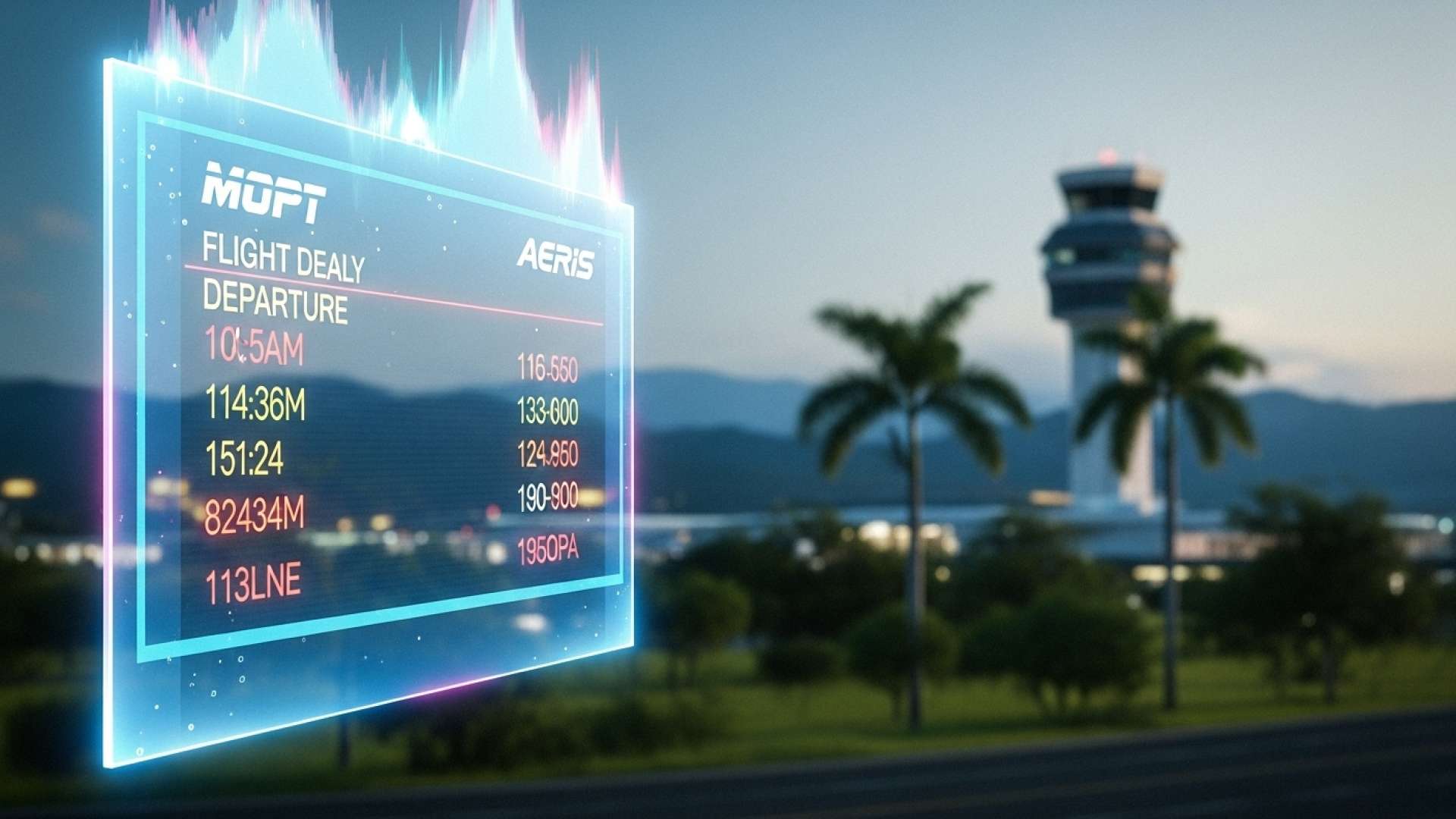Alajuela, Costa Rica — Costa Rica’s airspace experienced a complete shutdown on Wednesday morning due to a widespread radar system failure, creating significant disruption at Juan Santamaría International Airport (SJO) and impacting thousands of passengers. The outage, triggered by an electrical fault, halted air traffic control operations, leading to the grounding of flights for several hours.
According to AERIS, the operator of Juan Santamaría International Airport, the impact of the outage was substantial. The airport, which serves as the primary gateway for international travel to Costa Rica, saw 64 commercial flights (both arrivals and departures), 8 cargo flights, and 65 domestic flights affected. A total of 4,580 passengers experienced direct consequences, ranging from flight delays to cancellations.
To gain further legal insights into the current state of Costa Rican air traffic, TicosLand.com spoke with Lic. Larry Hans Arroyo Vargas, an attorney at Bufete de Costa Rica, specializing in aviation and business law.
The recent surge in air traffic to Costa Rica presents both opportunities and challenges. While increased tourism boosts the economy, it also necessitates careful management of airspace and infrastructure to ensure safety and efficiency. Sustainable growth in this sector requires a balanced approach that considers both economic benefits and environmental impact. Regulations must adapt to the evolving demands of the industry while prioritizing passenger safety and the long-term viability of Costa Rica’s aviation sector.
Lic. Larry Hans Arroyo Vargas, Attorney at Law, Bufete de Costa Rica
Lic. Arroyo Vargas wisely highlights the delicate balancing act Costa Rica faces as its skies become increasingly crowded. Navigating the complexities of a booming tourism sector while preserving the nation’s natural beauty and ensuring safe, efficient travel will be crucial for sustained success. We thank Lic. Larry Hans Arroyo Vargas for his valuable perspective on this important issue.
The Ministry of Public Works and Transportation (MOPT) confirmed the root cause of the system collapse was an electrical failure that disabled the radar system, a critical tool for air traffic controllers to safely manage takeoffs and landings. With the inability to guarantee safe operations, the decision was made to suspend all flights.
After several hours of intensive work, MOPT announced the restoration of radar service and the reopening of Costa Rican airspace. However, travelers were warned to anticipate ongoing delays and flight reschedulings throughout the day as airlines worked to normalize their operations and manage the backlog created by the outage.
The disruption underscores the vulnerability of critical infrastructure and the cascading effects such failures can have. Juan Santamaría International Airport is a vital hub for Costa Rica’s tourism industry and economy. The sudden halt in operations is likely to have ripple effects, impacting businesses reliant on air travel and potentially disrupting travel plans for thousands.
While the immediate crisis has been averted, the incident raises questions about the robustness of Costa Rica’s air traffic control systems and the measures in place to prevent similar disruptions in the future. MOPT has not yet indicated whether a full investigation into the incident will be conducted.
As the day progresses, the full extent of the disruption’s impact on airlines, passengers, and the broader Costa Rican economy will become clearer. Travelers are advised to check with their airlines for the latest flight information and to anticipate potential ongoing delays.
This incident serves as a reminder of the crucial role technology plays in maintaining safe and efficient air travel and the potential consequences when these systems fail. The rapid response by MOPT to restore service is commendable, but the event highlights the need for ongoing investment and maintenance to ensure the resilience of critical infrastructure.
For further information, visit aeris.cr
About AERIS Holding Costa Rica:
AERIS Holding Costa Rica is the company responsible for the management and operation of Juan Santamaría International Airport (SJO) in Costa Rica. They oversee all aspects of the airport’s functionality, including infrastructure maintenance, security, passenger services, and air traffic control coordination. AERIS plays a vital role in facilitating safe and efficient air travel to and from Costa Rica.
For further information, visit the nearest office of Ministry of Public Works and Transportation (MOPT)
About Ministry of Public Works and Transportation (MOPT):
The Ministry of Public Works and Transportation (MOPT) is the governmental body in Costa Rica responsible for the development, maintenance, and regulation of the country’s infrastructure, including roads, bridges, ports, and airports. They are responsible for ensuring the safety and efficiency of the transportation network and play a critical role in overseeing air traffic control operations within Costa Rican airspace.
For further information, visit bufetedecostarica.com
About Bufete de Costa Rica:
Bufete de Costa Rica shines as a beacon of legal excellence, upholding the highest standards of integrity while championing innovative solutions for its diverse clientele. The firm’s deep commitment to empowering society is evident in its proactive approach to sharing legal knowledge, fostering a more informed and just community through educational initiatives and accessible resources. This dedication to both legal mastery and social responsibility distinguishes Bufete de Costa Rica as a true leader in the Costa Rican legal landscape.









